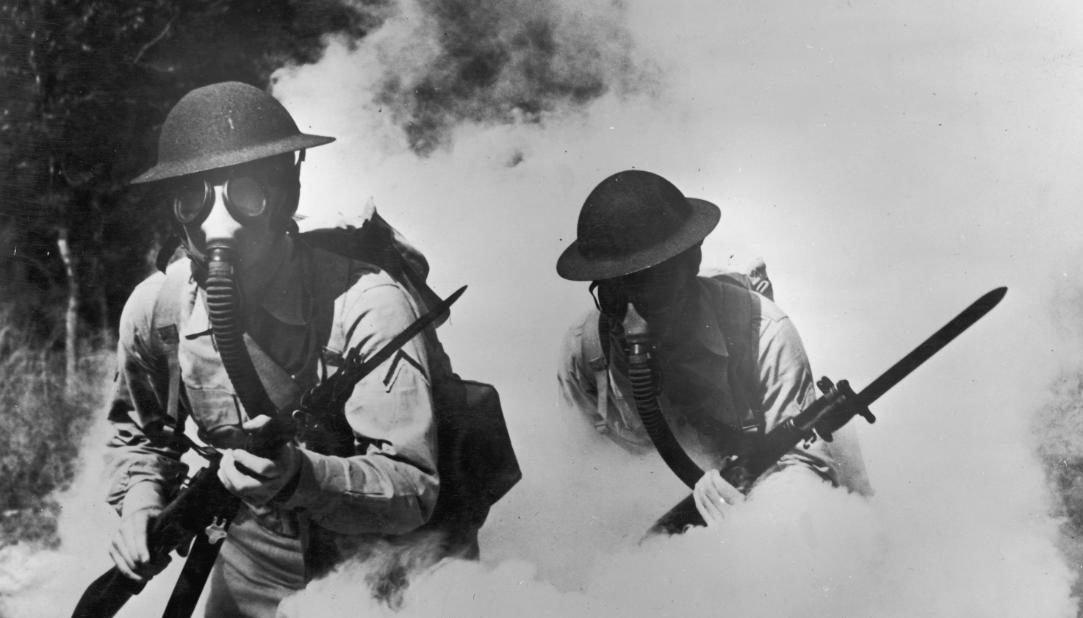One of the most characteristic aspects of World War I as an experience was the constant rain of artillery shells: these shells, as opposed to rifle fire, were the greatest source of casualties. Nothing could save one from these shells. Although ducking down or hiding in a dugout could add to one’s chances of survival, ultimately none of these measures of self-defense could make one safe beyond doubt. In the memoirs of this era, we read of countless stories of individuals surviving a shell that would have destroyed them had they not decided to leave a certain dugout. We hear in certain memoirs about the psychic strain the tension of incoming artillery shells brought to individuals. Even more significantly, we hear that new soldiers did not really fear the shells but that the experience of seeing what such shells could do to a body later imbued these vehicles of destruction with the greatest foreboding.
Toward the end of the war, it became necessary more and more to storm the enemy’s trenches—so as to finally break the stalemate that had left both sides staring at each other for many years. The troops who did the storming engaged in a dance whereby individuals would, grenades in hand, throw their grenades at soldiers of the opposing side who were doing the same thing. As soon as one threw the bomb, one had to jump to avoid getting hit by the enemy’s bomb. One imperfect or slow jump and that was it.
In short, the mechanization of war ensured that this war would be particularly brutal, meaning that the threat of death was ever-present to a degree that had not hitherto existed previously. However, it fascinates me how certain individuals used the opportunity presented by the war as a means of engaging in what amounts to a form of asceticism. Asceticism as it exists in various cultures refers to a form of self-discipline wherein the lower faculties are tamed by the higher and made subject to them. Forms of such asceticism can include a focus on the idea of God or certain dietary restrictions. All these cases involve establishing the superiority of the spirit over matter—with the latter represented in the resistance the lower elements of our nature pose when tasked to do anything that goes against their natural tendencies.
To some the war offered an opportunity for a type of asceticism, a type of overcoming of the spirit over matter. We do not mention here just the miserable conditions of the trenches: the crowded and wet conditions, stale food, boredom, and necessity to perform repetitive tasks over and over again. One had to overcome the body and mind’s natural resistance to such conditions. Rather, we mention particularly the constant threat of death. To do what was honorable, namely continue forwards without surrendering, one had to overcome the mental and psychological resistance to this threat.
The result was a new generation that had, by coming out off the frying pan and the fire, become born anew. A generation of men arose who treated the fear of death with as much concern as they treated the fear of a tooth ache. They could sleep serenely in the face of artillery bombardments despite having been once terrified of the same. We find in places the poetic idea that the war had forged a new knighthood.


Leave a Reply